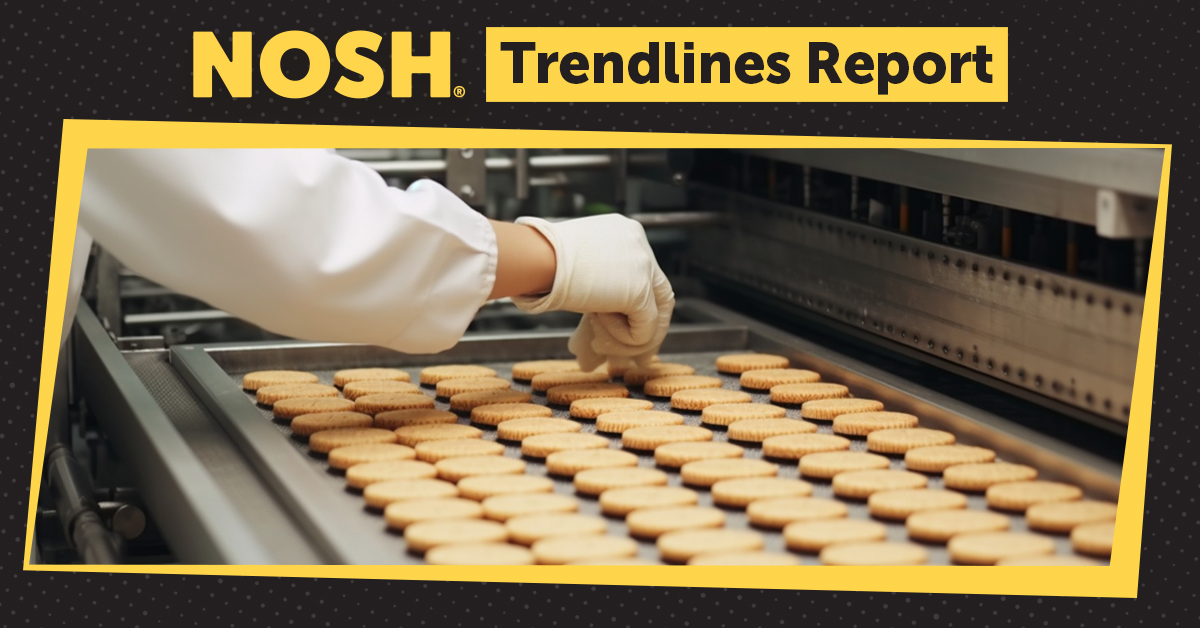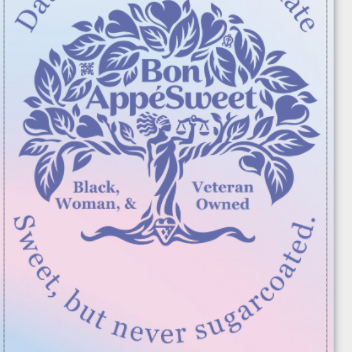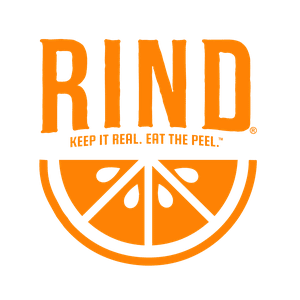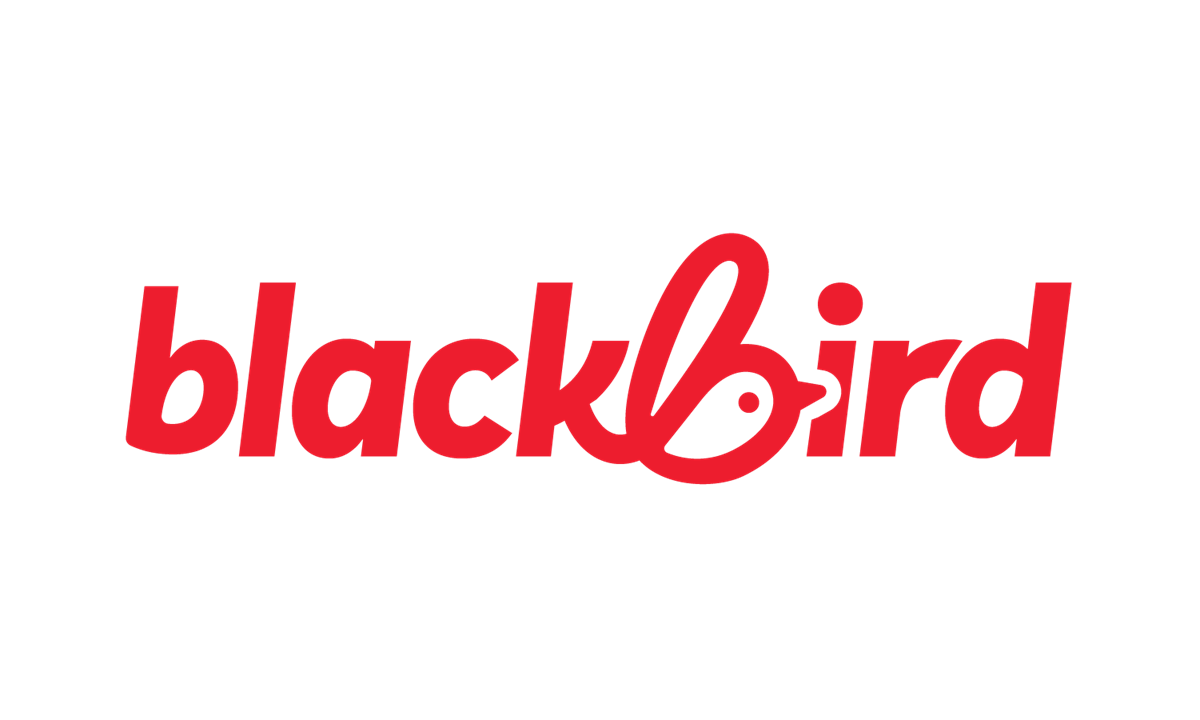Co-Pack Or Self-Man? Emerging Food Brands Face Tough Choices

You operate in a dynamic world, increasingly transforming in step with consumer preferences and economic upheaval. We are here to help you navigate it. Presenting the Nosh Trendlines Report, a series of informative articles on the latest evolutions – or revolutions – changing operations, retail distribution, product formulation, marketing and more. If you’re sensing a major shift in your business, let us know – chances are, you aren’t the only one.
Finding the right balance between control and efficiency is one of the toughest decisions founders make as they evolve out of the startup stage. A big part of that centers on production.
In their infancy, food brands often are developed in limited production runs at home or in commissary kitchens. But developing an innovative product and bringing a scalable version to market are two different endeavors. At some point most founders find themselves deciding between outsourcing to co-packing partners, which requires less up-front investment, or the more capital-intensive approach of self-manufacturing.
The advantage of self-manufacturing? “To be more in control,” said Beth Brown, founder of BJB Integrated Supply Strategy. “Low inventory, low minimum production runs and the ability to make modifications to recipes.”
Yet, managing a supply chain and logistics can be costly, between sourcing ingredients to packaging to labor costs, Brown added. “It’s hard enough to start a brand, let alone be an expert in how to best manage the quality control of a facility.”
But some brands are leaning into vertical integration, despite those complexities, for a variety of reasons.
For one brand, dried fruit snack maker RIND, the goal was trying to unlock growth.
RIND acquired Vermont-based granola company Small Batch Organics at the end of 2023. RIND was able to draw on the expertise of the granola maker to merge the two companies into a vertically-integrated model while also relying on one of its investors — supply chain consultancy JPG Resources’ venture arm RCV Frontline — to help guide the brand as it transitioned away from a co-man model.
While hard to quantify, there has seemingly been an uptick of early stage brands deliberately making the jump into self-manufacturing.
Some do it for the mission.
Chicago-based Every Body Eat made the decision early on to control its own manufacturing despite investor misgivings. Built with a commitment to employing rehabilitated felons and a brand premise that removes allergens from the manufacturing process, the brand story is a portrait of self-determination. The brand has always self-manufactured, from its start in a 1,000 sq. ft. facility at its 2017 inception to this year’s move into a 20,000 sq. ft. plant in a former car dealership. The ex-dealership provides both space and a solid structure to put large machinery for the brand’s snack production.
For other brands, the decision to self-manufacture was essentially built into the product itself.
Bon AppéSweet founder and CEO Thereasa Black experienced a lot of frustration trying to find a co-packer that could make her date-sweetened chocolates to her specifications. After starts and stops, Black decided to apply for a Small Business Administration loan in May 2023 because she “realized that the best way is to do it yourself.” Bon AppéSweet’s Leonardtown, Md., chocolate factory opened in October.
Black said being “investor-independent” is a strength because it can be hard to garner new capital right now and paying for co-manufacturer mandated minimum production runs can be costly.
“You never have loss,” she said. “A lot of outlet stores are dependent upon short sales because the expiration dates are coming up, but when you’re producing it yourself, you never have that. You don’t have waste because you don’t have to make extra.”
In 2014, flavored peanut butter maker BNutty also struggled to find a co-packer that could replicate the brand’s texture and its gluten-free requirements, said co-founder Carol Podolak. Graduating from a commissary kitchen, the brand moved into a 1,800 sq. ft. space and has steadily reinvested in itself since.
This year, the company expanded into the “Nuthouse,” a 50,000 sq. ft. space in North Indiana where it offers its services as a producer to other emerging brands looking for a Safe Quality Food (SQF) facility where “ordering by the truckload” is not the norm, Podolak said.
The company will take on minimum orders of a “few pallets” and, in the process, has opened up a lucrative arm side business.
Podolak estimates that about two-thirds of its business is in private label, co-packing and export, providing additional revenue to scaling the other third, BNutty’s branded offerings.
Vegan frozen pizza maker Blackbird decided it was going to run its own manufacturing primarily due to its proprietary seitan formula. Now, 20% of its revenue comes from its ability to scale wholesale foodservice offerings to vegan restaurants.
Established in 2020, the brand has found that managing production also leads to advantages in R&D, allowing for limited product runs to test new markets. Yet, it’s not all smooth sailing.
“Like everyone, when you’re trying to scale and become more efficient, you need better margins,” said Blackbird CEO and co-founder Emmanuel Storch. Maintaining margins can be challenging when buying new equipment and negotiating the constant “tug-and-pull” of whether to focus on manufacturing efficiency or marketing and sales strategy.
Wading through the paperwork, due diligence and yearly audits of operating a SQF-certified facility costs a lot of time, and money, Storch said.
“When you’re a small manufacturer starting out, you don’t really need to worry about a lot of that stuff,” he added. “But then you get into Whole Foods or some of the larger retail chains and there’s more oversight, there’s more compliance; which is good, but just harder on a brand.”
Read more: Nosh Trendlines Report
Thanks for reading! Our five-part series is designed to help you navigate a dynamic operating environment. Click the links below to read more.




















